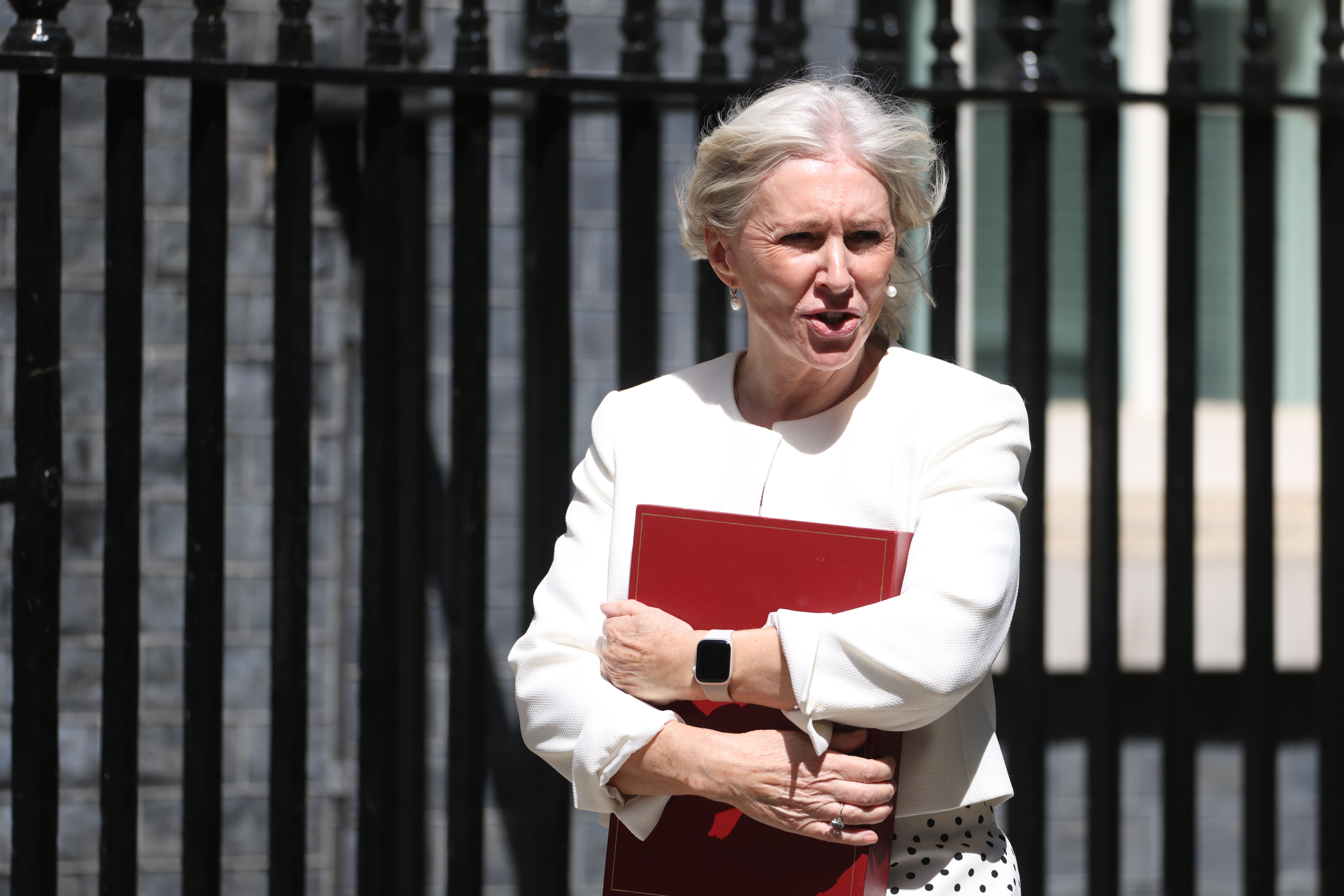Nadine Dorries’ resignation letter highlights the choices facing the Conservative Party
Editorial: In her resignation letter, Dorries tells the prime minister: ‘History will not judge you kindly.’ But how will her own legacy affect the party?

Nadine Dorries may be the first MP ever to resign twice without actually resigning at all.
Her first announcement that she was standing down as an MP “with immediate effect” was made almost three months ago, but it was mainly for the benefit of her television programme. Her second announcement – which said the same thing – was made on Saturday, in the form of a letter to Rishi Sunak.
In order to resign as an MP, one must send a closed letter to the chancellor, currently Jeremy Hunt, whose office was yesterday reading the letter on the Daily Mail website, the same as everybody else. As far as is publicly known, formal notification has still not been sent.
In her 1,750-word letter, Ms Dorries tells the prime minister: “History will not judge you kindly.” She is arguably now the established leader of the cult of Johnson – a cult to which a significant portion of Conservative MPs are still fully paid-up members.
Their view is that Mr Sunak and his supporters have destroyed the Tories’ electoral hopes by taking down Mr Johnson. They do not for a second believe that Mr Johnson was in any way involved in his own destruction, via the Partygate scandal and the lies that made it far more damaging than it needed to be.
But is Ms Dorries right? The most obvious judgement to be passed on Mr Sunak will come via the ballot box next year, and it is not likely to be a positive one. His time as prime minister will have been short, and will probably end in serious defeat. One way of limiting the extent of that defeat is to try to keep the Johnson cultists onside, but Ms Dorries’ letter is a clear signal of their intent.
Most of them know that they cannot hold on to their seats, which were, for the most part, in the “red wall” – seats that Labour had not lost in decades and will probably not lose again for decades more. They credit Mr Johnson for their victory, and blame everyone else for their impending doom.
But after they are gone, the party will have decisions to make, and it is these, perhaps, that will decide how history – or, at least, future Conservatives – will judge Mr Sunak. There are suggestions that the party could retreat once more into a cultish comfort zone, and make its leader someone like Suella Braverman, who will argue that “real Brexit” has never been tried, and who will blame the country’s problems on Labour not being cruel enough to everyone, especially migrants and asylum seekers.
There are alternative options, however. A few decades ago, but still within living memory, it was not always customary for prime ministers to give up the leadership of their party after electoral defeat. Current projections suggest that Labour may yet inherit, if not entirely benign, certainly improving economic circumstances. But it will still have to govern with no money, a near-impossible challenge for left-wing parties: without money, it is hard to improve people’s lives.
One way that the Conservatives could capitalise on this would be to have Mr Sunak, and possibly even Mr Hunt, still around. They could, with some justification, grasp every opportunity to take the credit for the improving economic situation. And they could put forward a strong alternative case, which is that a continued recovery is dependent on some of the tough decisions they took.
Sir Keir Starmer will want to increase public spending. The Tories can say that they refused to do so as raising public spending risks raising inflation. And when the wriggle room is there, they can argue instead for tax cuts, which still tend to be the voter’s preference.
Not much has changed in politics since David Cameron and George Osborne correctly divined, almost 20 years ago, that there was no path to power through turning one’s back on liberal metropolitan values – the kind that Mr Hunt has spurned, and that Mr Sunak is reasonably adept at pretending he has, too. The alternative is to go even further in the other direction for a few years before inevitably making peace with reality. To listen, in other words, to Nadine Dorries.



Join our commenting forum
Join thought-provoking conversations, follow other Independent readers and see their replies
14Comments